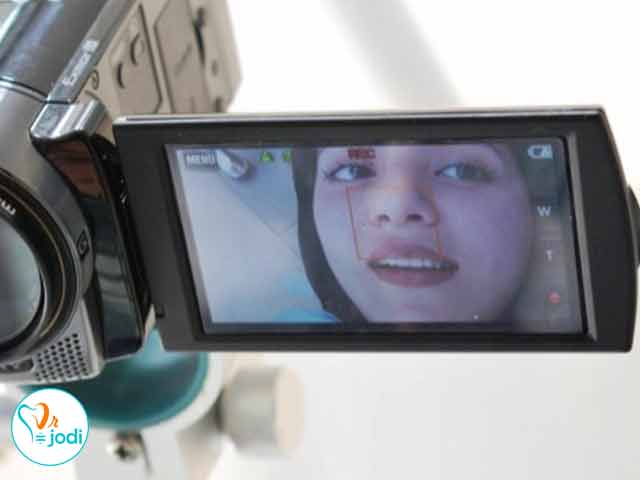Gingival Surgery with Laser

Gingival Surgery with Laser

How is gingival surgery done with lasers?
In laser gingivitis, it is eliminated with a potent laser of contaminated gums. In the areas of the gums that have microbial contaminated tissue and the back gingiva, with the help of laser gingival surgery, we remove these contaminated tissues and allow the gum to be restored and repaired, and to the main position The original area was originally back.
Does gum surgery with lasers have pain?
No Laser has therefore joined the modern dental cycle to reduce pain and discomfort for the patient, preventing the bleeding of the patient's gum, and the final treatment is much cleaner and more accurately done.
What are the complications and disadvantages of laser gum?
Laser gum surgery has no complications and no discomfort. The period of gingival tissue repair is faster, and fewer sessions are needed to treat a patient's gum.
What are the benefits of laser gingiva surgery?
A. Gingival surgery with lasers does not have pain.
B. When the laser is working, there is no bleeding.
C . In more than 90% of cases, it does not require numbness.
D. Because we do not have gum cut, so there is no need for gum stitches.
E. the number of laser gingival sessions from the old treatment.
What is laser application in surgery?
Lasers in pre-prosthetic surgeries (in order to better define the lines and remove excess tissue around painless teeth), the removal of benign and malignant lesions in the mouth and the removal of vascular lesions, especially in patients with coagulation problems. The laser can smooth the gum tissue smoothly without damaging the surrounding tissues, then it will have minimal swelling, pain and scar after laser gingival surgery, and can reduce gingival bleeding by vasoconstriction.
To treat oral lesions, rash, crayon and laser surgery are good for all three, but the advantages of the laser include selective treatment of damaged tissue, minimal damage to the healthy tissue around the gum, excellent scar repair with minimal scar, good performance, Work in shorter time, reducing bleeding and swelling and postoperative pain and no need for medication.
What are the different ways to treat gum disease and is there a cure for it?
The only way to slow down the effects of gum disease, stop it, or even defeat these diseases is to physically remove bacteria, plaque or calculus from below your gums.
How does laser treatment work?
Eliminating bad bacteria that cause gum disease can be done in a variety of ways. The conventional procedure of scaling and root planning (a kind of gum cleansing) followed by gum or bone surgery (a kind of gum cleansing) is followed. It is an effective way to remove plaque and calculus. A more modern approach is that a method with the least damage is called LANAP (a new laser-assisted connection method) that also treats gum disease with a laser. This method of treatment is the use of a specialized laser. Also, the less effective way is to take medications and antibiotics.
Gum disease is a chronic disease. The same bacteria that cause gum disease will float freely in your mouth and will return to your teeth and gums over time. Sometimes antibiotics can help, but this is only temporary. Calculus also comes from your saliva and will always come back. Calculus adheres to the teeth and root surfaces and can not be removed by brushing and dental floss. Regular periodontal maintenance is regularly checked and regular cleaning is required to keep bacteria from rebounding gums and teeth.
What are the signs of using laser to treat gum disease?
Why laser is superior to other methods? Laser periodontal treatment, Laser gum treatment, and LANAP method can be used in most patients. The specific advantages and symptoms of this method in the treatment of periodontal diseases include:
Great gingival lines / short appearance of the teeth
Gums and teeth are very sensitive
Loose, shifted and moving teeth
Swollen gums and bleeding
No bones and infections around tooth implants
When patients are prone to conventional periodontal surgery
When the patient has recurrent infections and recurrent gum disease
When the patient is looking for a method with the least amount of injury to treat her own gum disease
When someone consumes blood thinners such as aspirin, Coumadin or Plavix
When the patient is looking for a comprehensive and biological approach to gum disease.
When the patient has special drug conditions, there is no possibility of periodontal conventional surgery.
Why do patients prefer a laser?
If it is located, surgery is performed in the oral environment, such as implanted limb tooth extraction, after cutting the gum with a laser do not need to suture.
• Some dental treatments using laser do not require an anesthetic injection, so no need to inject a painful anxiety substance.
• In laser gingival surgery, gingival hemorrhage is greatly reduced, as the laser beam energy source causes faster blood clots in the cut veins, so the bleeding ends very quickly. For this reason, it is no longer necessary to endure the bad taste of your mouth after oral surgery.
• Oral infections are reduced after laser use, because energy from laser light eliminates germs and sterilizes the oral environment. This property prevents the spread of herpes, pests or even post-surgical ulcers and infections of the underarm.
Laser gingival surgery price
The cost of laser gingival surgery is slightly different or the old surgical methods may differ from 10 to 40% in comparison to blade surgery. The reason behind the higher cost of gingival surgery with laser is that the laser device is very expensive. The maintenance and maintenance of the device is high. Types and consumables of the laser device are high for each patient. Working with a laser device requires high precision and requires special care. Working with a laser device requires special care and, in the event of an error, may damage the device while the treatment is performed, but it does not pose a risk to the patient. The reason for repairing the device is also high.
The price of laser gingival surgery is performed by a gynaecologist after an accurate examination by a gynaecologist and an assessment of radiographic images. If a patient needs to perform a special test, a gum trainer will be prescribed to him. The cost of laser gum surgery is due to pain, It does not require numbness and does not seek postoperative bleeding, it is surely acceptable for patients and more cost effective than bladder surgery. The duration of treatment and the number of sessions are shorter, and for that reason it will be quite economical.

People who viewed this page also visited:
What are the dental implant treatment stages?
Implant Professional Center in Tehran
The best implant expert in Tehran
The best implant center in Tehran
What is immediate loading of dental implants?
Implant problems and implications
Force direction and its relationship with the implant body design
Unsuitable cases for dental implant
The geometry of the implant and its relationship with occlusal forces
The relationship of the implant body and functional surface














